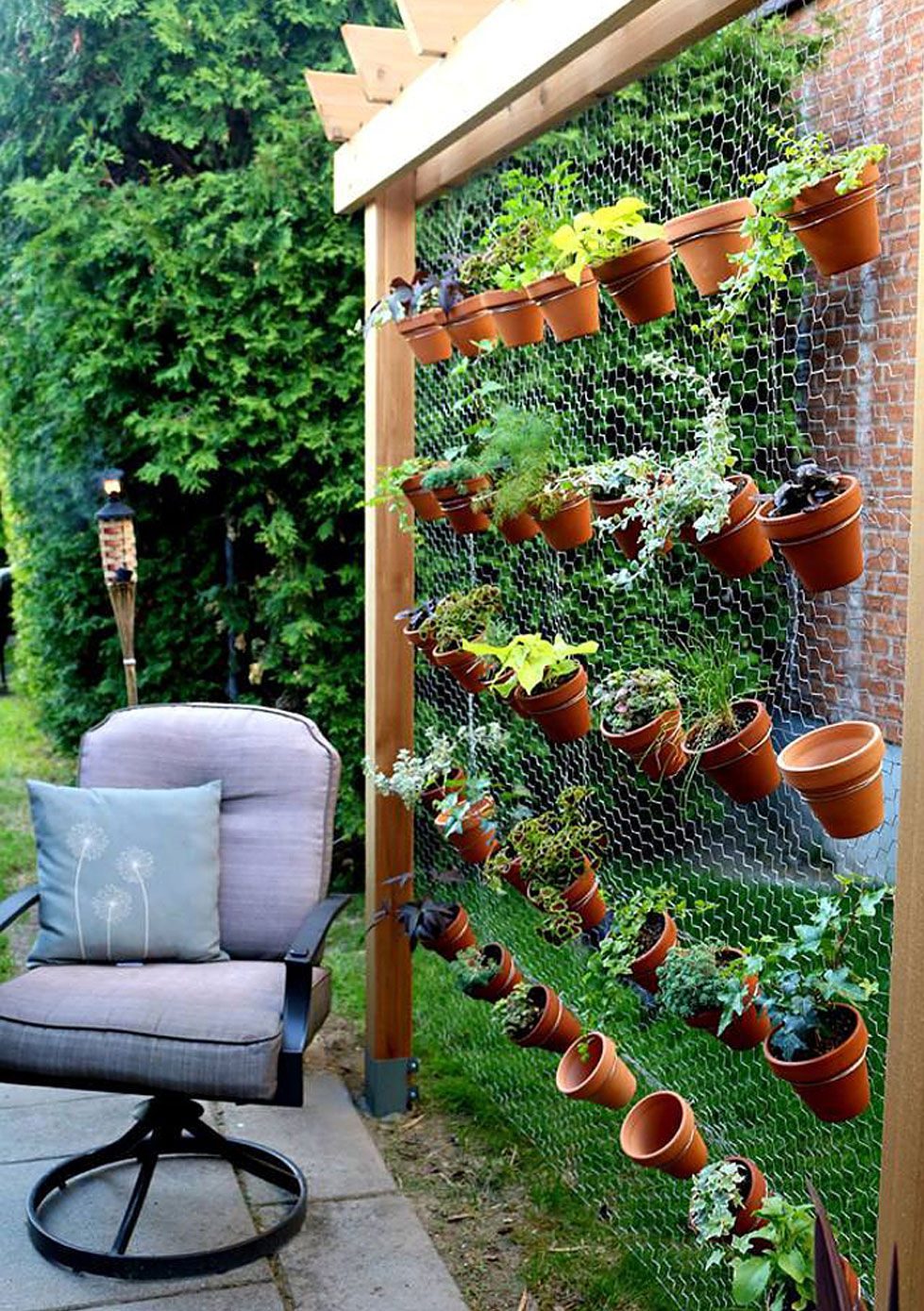
Upcycled Materials for DIY Vertical Gardens: A Sustainable Gardening Solution
Introduction
Upcycled materials have become increasingly popular in the realm of DIY vertical gardens, offering a creative and sustainable solution for gardening enthusiasts. This article delves into the concept of upcycling and its relevance in gardening, highlighting how DIY vertical gardens can support sustainability. By utilizing discarded or repurposed materials, these gardens not only add a unique aesthetic appeal but also contribute to the conservation of resources.
Historical Background
Vertical gardening has a rich history that dates back centuries. From the Hanging Gardens of Babylon to the ancient Mayans’ use of terraced farming, vertical gardening methods have been practiced across different cultures. The incorporation of upcycled materials in gardening practices, however, is a more recent phenomenon. While historical examples of upcycled materials being used in gardening are limited, the concept has gained traction in recent years due to the growing awareness of sustainability.
Key Concepts and Definitions
To understand the significance of upcycled materials in sustainable gardening, it is crucial to define the concept of upcycling. Upcycling involves repurposing discarded items or materials to create something of higher value or quality. In the context of gardening, upcycled materials provide an opportunity to transform waste into valuable resources. DIY vertical gardens, on the other hand, refer to the practice of growing plants vertically using various structures. These gardens offer advantages over traditional gardening methods by maximizing space and promoting efficient water usage. Terms such as repurposing, salvaging, and sustainability further complement the concept of upcycled materials in gardening.
Main Discussion Points
Types of Upcycled Materials for DIY Vertical Gardens
When it comes to upcycled materials for vertical gardens, the possibilities are endless. Old pallets, tires, bottles, and cans are just a few examples of materials that can be repurposed. Each material comes with its own benefits and limitations. For instance, old pallets provide a sturdy framework for vertical gardens, while bottles and cans offer a unique way to hold and grow plants. Step-by-step instructions or guidelines for using each material effectively can help gardeners make the most of these upcycled resources.
Benefits of Upcycled Materials for DIY Vertical Gardens
The use of upcycled materials in vertical gardens offers several environmental benefits. By repurposing items that would otherwise end up in landfills, gardeners contribute to waste reduction and conservation of resources. Moreover, upcycling materials can save money and reduce the need for purchasing new gardening supplies. Beyond their environmental advantages, upcycled vertical gardens also add a distinctive aesthetic appeal, showcasing the creativity and resourcefulness of the gardener.
Maintenance and Care for Upcycled Vertical Gardens
While upcycled vertical gardens offer numerous benefits, proper maintenance is essential to ensure their longevity. Gardeners should consider factors such as soil quality, watering techniques, and pest control. Techniques such as composting and proper drainage can enhance soil quality, while regular watering and pest control measures prevent plant damage. Additionally, addressing potential challenges and offering solutions, such as dealing with limited sunlight or space constraints, can help gardeners overcome obstacles.
Case Studies or Examples
Real-world examples of successful upcycled vertical gardens serve as inspiration and demonstrate the impact of these sustainable gardening practices. Stories of individuals or communities who have implemented upcycled materials in their gardening practices can provide valuable insights. Visuals or photographs showcasing the creativity and beauty of upcycled vertical gardens further illustrate the potential of these sustainable gardening solutions.
Current Trends or Developments
The field of upcycled gardening materials and techniques continuously evolves as new trends emerge. Recent developments have witnessed innovative approaches to repurposing materials and advancements in vertical gardening structures. Research and studies on the effectiveness of upcycled vertical gardens highlight the growing interest and scientific understanding of this sustainable gardening practice.
Challenges or Controversies
Despite the numerous benefits, upcycled materials for vertical gardens may present certain challenges. These challenges include potential obstacles in sourcing materials, limited availability of suitable structures, and the need for regular maintenance. Controversies or differing viewpoints may arise concerning the effectiveness or safety of upcycled materials. However, counterarguments and evidence supporting the use of upcycled materials can address these concerns.
Future Outlook
The future of upcycled vertical gardens appears promising, with the potential for significant growth. Technological advancements and developments in materials science may offer new opportunities for creative gardening solutions. Additionally, policy changes or regulations that promote sustainability may further influence the use of upcycled materials in gardening practices.
Conclusion
In conclusion, upcycled materials provide a sustainable gardening solution through DIY vertical gardens. By repurposing discarded items, gardeners can contribute to resource conservation while creating unique and aesthetically pleasing gardens. As the popularity of upcycled vertical gardens continues to rise, it is essential for gardening enthusiasts to explore and embrace upcycling techniques in their own practices.
References
Smith, John. “Upcycling in the Garden: Creative Ideas for Repurposing Materials.” Green Thumb Publications, 2018.
Johnson, Emily. “The Art of Vertical Gardening: Maximizing Space and Sustainability.” Sustainable Living Magazine, vol. 23, no. 4, 2019, pp. 56-69.
www.upcycledgardening.com – A comprehensive website dedicated to upcycled gardening techniques and ideas.
Sustainable Gardening Association. “Repurposing for a Greener Garden.” Research Report, 2020.